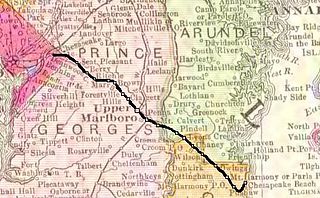
Portland General Electric (PGE) is a Fortune 1000 public utility based in Portland, Oregon. It distributes electricity to customers in parts of Multnomah, Clackamas, Marion, Yamhill, Washington, and Polk counties – 44% of the inhabitants of Oregon. Founded in 1888 as the Willamette Falls Electric Company, the company has been an independent company for most of its existence, though was briefly owned by the Houston-based Enron Corporation from 1997 until 2006 when Enron divested itself of PGE during its bankruptcy.

The Potomac Electric Power Company (PEPCO) is an American utility company that supplies electric power to the city of Washington, D.C., and to surrounding communities in Maryland. It is owned by Exelon.

Exelon Corporation is a public utility headquartered in Chicago, and incorporated in Pennsylvania. Exelon is the largest electric parent company in the United States by revenue and is the largest regulated electric utility in the United States with approximately 10 million customers. The company is ranked 99th on the Fortune 500.
Baltimore Gas and Electric Company (BGE) is a subsidiary of the Exelon Corporation and Maryland’s largest gas and electric utility. BGE earlier had created the holding company Constellation Energy in 1999. Constellation Energy was acquired by Exelon in 2012.

Delmarva Power is an energy company that provides electricity and natural gas to customers on portions of the Delmarva Peninsula in the states of Delaware and Maryland. The company is a subsidiary of Exelon.
Pepco Holdings was a holding company incorporated in February 2001 for the purpose of effecting the acquisition of Conectiv Power Delivery by Potomac Electric Power Company. The acquisition was completed on August 1, 2002, at which time Pepco and Conectiv became wholly owned subsidiaries of PHI. Conectiv itself had been formed in 1998 to be the holding company of Delmarva Power & Light Company and Atlantic City Electric Company (ACE) in connection with the combination of DPL and ACE. In 2005, PHI resumed the use of the Delmarva Power and ACE brands for purposes of operations, with the result that Conectiv Energy was the only remaining Conectiv brand and was restricted for PHI's energy production facilities. Operations of the various companies controlled by Pepco Holdings take place in the Mid-Atlantic states of the United States. Pepco serves Washington, D.C., and its Maryland suburbs, Delmarva Power serves the Delaware and Maryland portions of the Delmarva Peninsula, and Atlantic City Electric serves South Jersey. In 2008, Delmarva Power sold its service area in the Virginia portion of the peninsula to A&N Electric Cooperative and Old Dominion Electric Cooperative for US$44 million. In April 2010, Conectiv Energy was sold to Calpine Corporation.

RCN Corporation, originally Residential Communications Network, founded in 1993 and based in Princeton, New Jersey, was the first American facilities-based ("overbuild") provider of bundled cable telephony, cable television, and internet service delivered over its own hybrid fiber-coaxial local network as well as dialup and DSL Internet service to consumers in the Boston, Chicago, Los Angeles, New York City, the Lehigh Valley in eastern Pennsylvania, and Washington, D.C. areas.
Distribution companies (DISCOs) are companies under Pakistan Electric Power Company (PEPCO) responsible for distribution of electricity in their respective allocated areas. They buy electricity from producers such as Water and Power Development Authority (WAPDA), GENCOs, PAEC and other private Independent Power Producers (IPPs) and sell it to their respective area customers. All companies are owned by the Government of Pakistan except K-Electric, which was privatized in 2005. Unfortunately, most of the electricity distribution companies in Pakistan are highly inefficient and leads to huge line losses of electricity.
The January 1999 North American ice storm was a severe ice storm that struck the Washington, D.C. metropolitan area on January 14 and 15, 1999. Heavy ice accumulation brought down power lines, which resulted in around 745,000 people in the area losing power. Many of the major power companies supplying Washington, D.C., Maryland, and Virginia had significant portions of their customer bases impacted. At the height of the storm, around one third of PEPCO's customers were without power, with some waiting up to two weeks for power to be restored.
Popes Creek is a 3.4-mile-long (5.5 km) stream in Charles County, Maryland and a tributary of the Potomac River.
Electricity in Pakistan is generated, transmitted and distributed by two vertically integrated public sector companies, first one being Water and Power Development Authority (WAPDA) responsible for the production of hydroelectricity and its supply to the consumers by electricity distribution companies (DISCOS) under the Pakistan Electric Power Company (PEPCO) being the other integrated company. Currently, there are 12 distribution companies and a National Transmission And Dispatch Company (NTDC) which are all in the public sector except Karachi Electric in the city of Karachi and its surrounding areas. There are around 42 independent power producers (IPPs) that contribute significantly in electricity generation in Pakistan.

The Chesapeake Beach Railway (CBR), now defunct, was an American railroad of southern Maryland and Washington, D.C., built in the 19th century. The CBR ran 27.629 miles from Washington, D.C., on tracks formerly owned by the Southern Maryland Railroad and then on its own single track through Maryland farm country to a resort at Chesapeake Beach. The construction of the railway was overseen by Otto Mears, a Colorado railroad builder, who planned a shoreline resort with railroad service from Washington and Baltimore. It served Washington and Chesapeake Beach for almost 35 years, but the Great Depression and the rise of the automobile marked the end of the CBR. The last train left the station on April 15, 1935. Parts of the right-of-way are now used for roads and a future rail trail.

The Pakistan Water & Power Development Authority is a government-owned public utility agency maintaining hydropower and water in Pakistan, although it does not manage thermal power plants. WAPDA includes Tarbela and Mangla dams among its resources. Its headquartered in Lahore.

Cazadero is an unincorporated historic locale in Clackamas County, Oregon, United States. Cazadero was a station on the Estacada interurban railway line of the Portland Railway, Light and Power Company (PRL&P) and later Portland Electric Power Company (PEPCO), near where the power plant of the PEPCO-owned Cazadero Dam was located on the Clackamas River.

The Portland Railway, Light and Power Company (PRL&P) was a railway company and electric power utility in Portland, Oregon, United States, from 1906 until 1924.
Pakistan Electric Power Company (PEPCO) is a defunct holding company and used to operate as a division of the Ministry of Water and Power (Pakistan).
Algonkian Regional Park is located on the Potomac River in Sterling, Virginia at Cascades, Virginia. The 838-acre park is owned and operated by the Northern Virginia Regional Park Authority and contains open fields, picnic shelters, rental cottages, an event center for weddings and meetings, a boat launch with access to the Potomac River, the Volcano Island water park open from May to September, and an 18-hole golf course. The park is bisected by the Potomac Heritage Trail.
Comverge is an American privately held company that provides software, hardware, and services to electric utilities implementing demand response and energy efficiency programs.
The Douglas Point Nuclear Power Plant was proposed in 1973 for a site on the Potomac River to the south of Washington, D.C. by the Potomac Electric Power Company (PEPCO). The proposed generating facility was to be located in Charles County, Maryland, about 30 miles (48 km) south of Washington, D.C. Two boiling water reactors of about 1150 megawatts were proposed, with projected in-service dates of 1981 and 1982. Two 450-foot (140 m) cooling towers were proposed, and water consumption was projected at 108,000 US gallons per minute (410,000 L/min). The project was set aside in the late 1970s. Opposition centered on the plant's effects on striped bass spawning grounds in the Potomac and consequent damage to the striped bass fishery in the Chesapeake Bay.
The Sukkur Electric Supply Company (SEPCO) is a public utility company operating in Pakistan, specifically serving the Sukkur region, that falls under the jurisdiction of the Pakistan Electric Power Company (PEPCO) and operates in compliance with regulations set by the National Electric Power Regulatory Authority (NEPRA). SEPCO's primary responsibility is the distribution and supply of electricity within its designated area.








